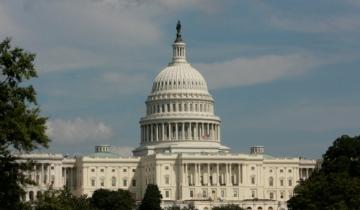FOR IMMEDIATE RELEASE
Media Contact
Kathryn Klopfer, Marketing Communications & PR Manager
[email protected] | 262.696.3426
Holidays Are Here—What Are the Most Common Business Holiday Practices?
MILWAUKEE, WI (December 3, 2020) – Results of MRA’s 2020 Holiday Practices Survey highlight the most common holiday pay and practices from more than 900 participating organizations.
MRA suggests that offering employees special time off is one of the best ways to show employee appreciation. Recognizing and celebrating holidays also helps build critical company culture. Having shared experiences is a nice benefit to offer employees.
The pandemic has changed so much in our lives this year. It has even disrupted vacation plans. Many employers are finding that employees are not using vacation time as much as they have in the past, due to employees not being able to take off because of workload or not wanting to use vacation days since they cannot travel to select destinations. MRA’s Holiday Practices Survey asked if employers would allow the days earned to rollover. Under current vacation/PTO policy, 71 percent of organizations allowed vacation to roll over. Now, organizations that did not allow rollover previously are considering adding it to their policy. Seventeen percent plan to modify rollover maximums due to the pandemic and employees not wanting to or not being able to take time off. The majority of those surveyed (47 percent) plan to change the number of rollover hours allowed.
Looking ahead to 2021, three federal holidays fall on weekends: Independence Day, Christmas, and New Year’s Day 2022. Federal holidays that fall on a Saturday are generally recognized on the preceding Friday, where holidays that fall on Sunday are generally recognized on the following Monday. However, holiday recognition is often dependent on company operations. Survey responses show 35 percent substitute a scheduled day of holiday pay if the holiday falls on a nonscheduled workday. This is up 6 percent from the previous year. Overall, 72 percent of organizations do not have an alternative work schedule for holidays. For those employees required to work on holidays, the majority of respondents (28 percent) reported that they offer time and one-half for hours worked plus holiday pay.
Only 10 percent of companies surveyed have a plant/warehouse shutdown, usually over the winter holiday break or a summer shutdown, with an average of 5 days paid during the shutdown. (This does not reflect COVID-related shutdowns.)
The average number of paid scheduled holidays in 2021 remains consistent from past surveys between 8 and 9.5 total days (according to 50 percent of survey respondents).
Additional paid holidays include:
- Juneteenth, June 19, 2021: 11 percent of organizations reported recognition of this state holiday.
- Christmas Eve and Christmas Day: 65 percent observe 2 days.
- New Year’s Eve and New Year’s Day: 9 percent observe 2 days. (However, also noted: 53 percent of surveyed organizations work a normal schedule on New Year’s Eve.)
- Martin Luther King Jr. Day, January 18, 2021: 12 percent offer a paid full day.
- Presidents Day, February 15, 2021: 6 percent offer a paid full day.
- Good Friday, April 2, 2021: 27 percent offer a paid full day.
- Independence Day: 6 percent observe 2 days for Independence Day.
In addition to paid holidays, floating holidays also are offered to employees. Of the participating organizations, while 58 percent do not offer any floating holidays, 23 percent offer 0.5-1.5 days and 13 percent offer 2-2.5 days.
Of the other paid events companies offer, the top 5 events are:
- Appreciation lunches—53 percent
- Holiday or end-of-year party—47 percent
- Organized summer activity or event—39 percent
- Department-driven social event—29 percent
- Team-building events—28 percent
The data from MRA’s Holiday Practices Survey is intended to offer ideas and help drive an organization’s total rewards and talent strategies. Organizations can see what others are doing and make decisions based on the trends other employers are offering.
In addition, MRA offers information on holiday policies and holiday shutdowns. For more information contact the MRA HR Hotline at 866.474.6854. To request a copy of the full 2021 Holiday Practices Survey, contact [email protected] .
###
About MRA—The Management Association: Founded in 1901, MRA is a nonprofit employer association that serves 4,500 employers, covering more than 1 million employees worldwide. As one of the largest employer associations in the nation, MRA helps its members thrive by offering comprehensive HR services, talent management, learning and organization development opportunities, and total rewards planning. MRA helps organizations build a successful workplace and powerful workforce. Headquartered in WI, MRA has regional offices in Palatine, IL; Moline, IL; and Plymouth, MN. To learn more about MRA, visit www.mranet.org

